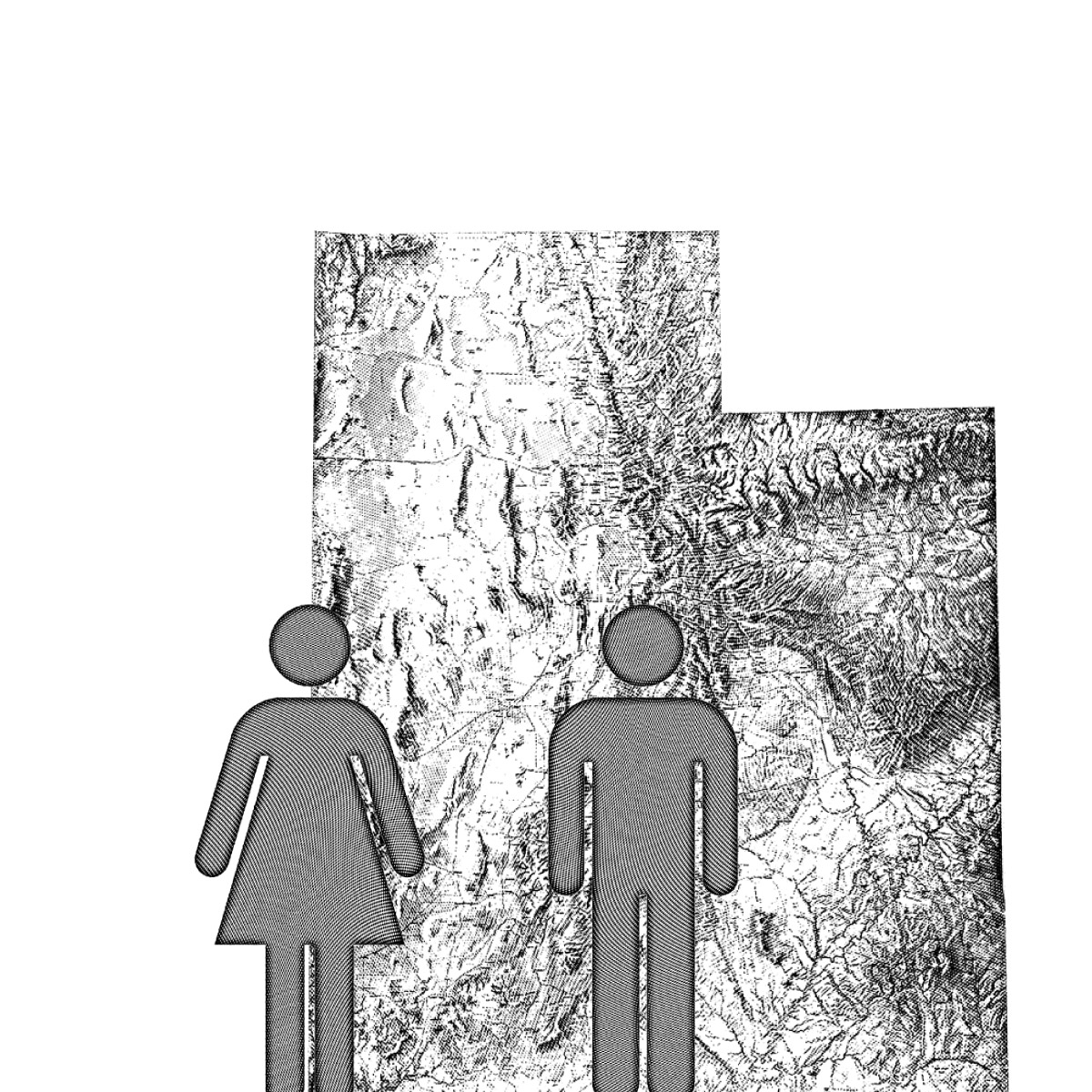Utah Gender Wage Gap

Does Utah have one of the widest wage gaps between men and women in the nation?
Yes. When it comes to the unadjusted gender wage gap, Utah has the second-highest wage gap in the U.S., with women making $0.69 for every $1 a man makes.[1]
There is no data available on the adjusted gender wage gap for Utah, but it is estimated that Utah women earn more than $0.949 for every $1 a man makes.[2]
What are the adjusted or unadjusted gender wage gaps and how are they defined?
Economists have defined the gender wage gap as "a metric that tells us the difference in pay (or wages, or income) between women and men."[3] The calculations for the adjusted gender wage gap account for differences in education, work experience, occupations, etc., while the unadjusted calculations do not.[4]
For example, an unadjusted gender wage gap might compare an experienced female architect's salary to that of an inexperienced male construction worker, while the adjusted gap would compare a male and female architect with similar backgrounds
What is the adjusted age gap used for? Why not use the unadjusted pay gap information?
Controlling for more variables means more precise data, which enables policymakers and business leaders to better identify ways of promoting economic opportunities for women.[5]
In a 2009 report, the U.S. Department of Labor stated that the unadjusted pay gap can be "used in misleading ways" and doesn't explain the true causes of the gap.[6] The St. Louis Federal Reserve noted that the unadjusted number is a bad indicator on which to base corrective actions.[7]
By controlling for age, education, experience, location, job level, company, and function, the adjusted wage gap provides a more accurate assessment of the individual circumstances of women.[8] It also tends to lower the discrepancy to between 2% and 6%.[9] Unadjusted values are less specific and indicate a gap of about 24%.[10]
What kind of controls does the adjusted gap use?
Some controls include age, education, experience, location, job level, company, and function.[11]
For example, controlling for weekly hours worked significantly reduces the national gender pay gap,[12] because on average and across all industries, women in the U.S. work fewer hours a week than men.[13] This is also true in "white collar" occupations such as physicians,[14] lawyers,[15] and MBAs.[16] Even within unionized occupations (which are designed to be equalized), women work less overtime and take more unpaid time off.[17]
What does the gender wage gap have to do with the Church?
Some researchers have argued that religion plays a major role in Utah's gender wage gap, particularly with the Church's focus on family, motherhood, and child-rearing.[18]
The Church teaches that "mothers are primarily responsible for the nurture of their children" and "fathers . . . are responsible to provide the necessities of life and protection for their families."[19]
How do the Church's teachings on family and motherhood influence the gender wage gap?
The Church teaches that mothers have a responsibility to nurture their children and fathers have a responsibility to earn a living and support their families financially.[20] Latter-day Saints make up the majority of Utah's population.[21] Utah has the highest birth rate[22] and one of the highest fertility rates in the nation.[23]
Having children plays a major role in women's decisions about occupation and work hours,[24] which contributes to the unadjusted gender wage gap.[25]
So does the Church teach that women shouldn't work?
Yes and no. The Church teaches that "fathers and mothers are obligated to help one another as equal partners" and that "circumstances may necessitate individual adaptation."[26]
Church leaders have recognized various circumstances in which women have to work, though the ideal has still been taught that they should ideally be stay-at-home mothers.[27] However, many women in Church leadership[28] and wives of apostles have worked full-time in prestigious occupations,[29] which demonstrates an openness to women earning a living and finding personal fulfillment in their careers.
But in the past, did the Church used to teach that women shouldn't work?
Yes. While "exceptions" were acknowledged, Church leadership taught that women should stay at home.[30][31]
What outcomes do Church teachings have on women in the workplace?
By encouraging women to have children and be mothers, the Church could put Latter-day Saint women at a disadvantage in the workplace, as raising children directly impacts career progression.[32] This may contribute to existing discrimination in the workplace.[33]
However, according to research from Pew Research Center, American parents find almost twice as much meaning in childcare experiences than they do in employment.[34] Looking at women specifically, over half of all working moms reported they would rather stay home, and over half of stay-at-home moms reported that their desire to raise children was a "major reason" for not working.[35]
Related Question
Is the proclamation on the family official doctrine?
Read more in The Family Proclamation
Are there any official statements or policies from the Church about fair wages for women?
No.
Has Church leadership taken any public positions on gender equality?
Yes.[36] For example, Utah is where the first vote by a woman was cast in the United States.[37] The suffrage movement in Utah was led by women such as Eliza R. Snow, the general Relief Society president,[38] and was supported by the Church-owned Deseret Evening News.[39] Church leaders have also encouraged women to get an education.[40] Nearly half of the students enrolled at the University of Deseret when it reopened in 1869 were women,[41] even though less than 15% of all bachelor's degree recipients in the United States at the time were female.[42]
However, the Church opposed the Equal Rights Amendment in 1978, worrying that it would "nullify many accumulated benefits to women in present statutes."[43] In 2019, a spokesman for the Church reportedly reconfirmed the original statement.[44]
What are some proposed solutions to the gender wage gap problem in Utah?
In 2020, the Utah Advisory Committee to the U.S. Commission on Civil Rights recommended stronger enforcement of antidiscrimination laws, greater encouragement of women entering STEM fields, and the enactment of new legislation.[45][46]
The Utah Women & Leadership Project at Utah State University made similar recommendations[47] and called for "a comprehensive, statewide study of the causes and effects of Utah's gender pay gap."[48][49]
- Merlin G.
“There is no "pay gap" period. A simple clue, if companies can hire women who do the same job as men, but get paid less, there would be no men in the workforce. But there are men in the workforce. Simple logic.” - USA
“It is illegal to pay women at a different rate than men. Women are paid the same, but work less or choose jobs that pay less. Think about it do you pay less if you go to a women dentist or doctor??” - Will
“I believe this topic is used as a weapon by people who don't understand the claim. Pretty much a nonissue when it comes to the truthfulness of the church and its teachings.”



 about this topic
about this topic